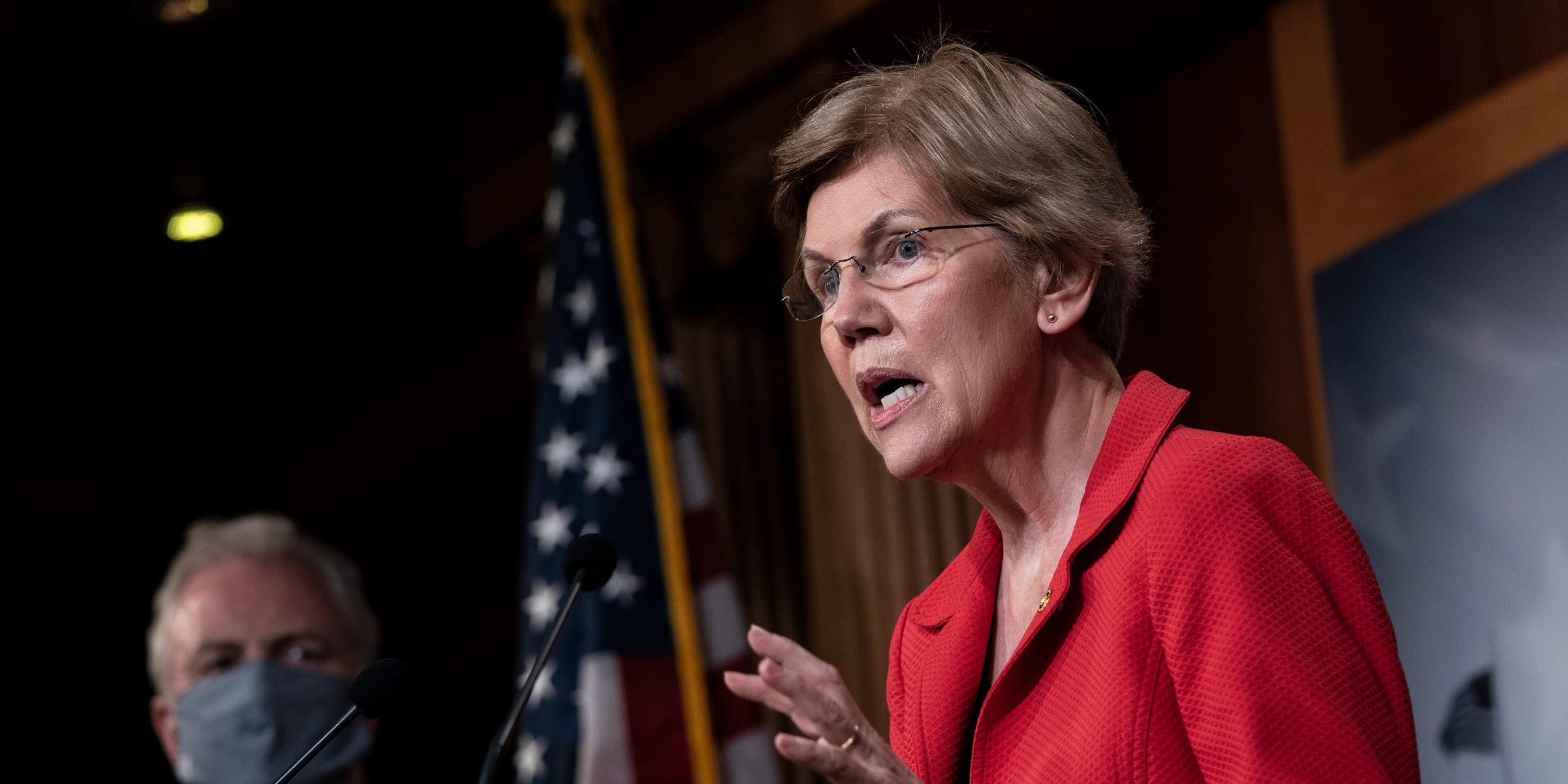
- Democratic lawmakers introduced a bill that would place a 2% wealth tax on households with net worths over $50 million.
- The wealth tax would work to combat wealth inequality and include anti-evasion measures to ensure everyone is paying their fair share.
- Progressive lawmakers have championed the wealth tax, but more moderate and conservative lawmakers have pushed back on it.
- Visit the Business section of Insider for more stories.
In an effort to combat wealth inequality, Democrats on Monday unveiled a bill that would impose a 2% wealth tax on American households with net worths over $50 million.
Sen. Elizabeth Warren of Massachusetts, who has long been a proponent of the wealth tax, introduced the Ultra-Millionaire Tax Act with Rep. Pramila Jayapal of Washington and Rep. Brendan Boyle of Pennsylvania.
According to a press release, the bill would create a fairer economy without raising taxes on the 99.95% of households with net worths below $50 million by creating a 2% tax on households with net worths between $50 million and $1 billion, along with a 1% annual surtax – or 3% overall tax – on households with net worths over $1 billion.
“The ultra-rich and powerful have rigged the rules in their favor so much that the top 0.1% pay a lower effective tax rate than the bottom 99%, and billionaire wealth is 40% higher than before the COVID crisis began,” Warren said in a statement. “A wealth tax is popular among voters on both sides for good reason: because they understand the system is rigged to benefit the wealthy and large corporations.”
—Elizabeth Warren (@SenWarren) March 1, 2021
The ultra-millionaire tax also has anti-evasion measures, according to a bill summary, which include:
- A $100 billion investment to strengthen the Internal Revenue Service;
- A 30% minimum audit rate for taxpayers subject to the tax;
- A 40% exit tax on US citizens with net worths over $50 million who renounce their citizenships;
- And third-party reporting for existing tax information exchange agreements, along with penalties for underpayment.
The press release cited an analysis that economists Emmanuel Saez and Gabriel Zucman of the University of California-Berkeley sent to Warren on February 26 regarding the wealth tax, saying that the tax would bring in at least $3 trillion in revenue over ten years.
100,000 American families would be liable for the wealth tax in 2023, Saez and Zucman estimated, and the tax would raise about 1% of gross domestic product per year.
Warren has consistently advocated for the wealth tax, and in fact, made it a core component of her 2020 presidential campaign. In her campaign fact sheet, it said that the money gained from a wealth tax would allow for investments in universal child care, tuition-free technical school, student debt cancellation, and financing Medicare for All.
And other progressive lawmakers, like Sen. Bernie Sanders of Vermont - a co-sponsor of the bill - have advocated for a tax on wealthiest Americans.
"When the gap between the very rich & everyone else is widening; when the 50 richest Americans own more wealth than the bottom half of our country; when the effective tax rate of billionaires is less than that of average workers; YES. We must address income & wealth inequality," Sanders said in a tweet on February 18.
According to a 2019 Insider poll, 54% of Americans support Warren's wealth tax. However, taxing the rich has received pushback from moderate and conservative lawmakers, and it will likely be difficult to pass through Congress. For example, during the presidential debate on October 15, Sen. Amy Klobuchar of Minnesota said Warren's plan "is not the only idea."
As an alternative to the wealth tax, Rep. Ro Khanna of California introduced a bill on February 17 that would hold the ultra-rich accountable by requiring more aggressive auditing from the IRS, rather than imposing additional taxes.
"Right now, the wealthiest 1% are responsible for roughly 70% of the 'tax gap' - the difference between taxes owed and taxes paid," Khanna said in a statement. "It's time every American pay their fair share."









